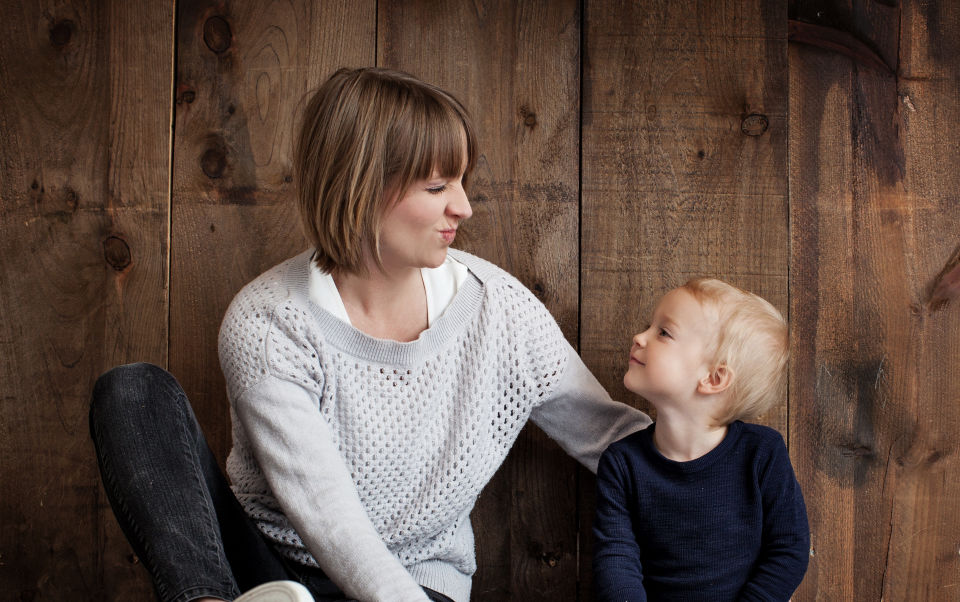The ‘perfect mum’ is a myth: 5 tips on how to feel more confident in your parenting decisions
People can be so judgemental of mums and this can often make us question our ability to parent. Here are 5 tips on how to shut out the background noise.
People are much more opinionated these days – and it may not just be in the playground. In this age of social media, with Twitter, Instagram and Facebook, there are many platforms for people to voice their points of view.
Whether or not to breastfeed, control cry, or send your child to daycare, everyone has something to say. And unfortunately, there aren’t any direct answers and too much conflicting advice.
Sometimes all of this judgement can leave us questioning our parenting abilities as well as leaving us feeling guilty, anxious, stressed. This, in turn, can affect our mental health.
Here are five top tips on how to shut out the background noise…

5 tips on how to feel more confident in your parenting decisions
1. Trust your instincts
Our mothers and mothers mothers and generations before us managed without textbooks, believe it or not, but you already know what to do! You just have to listen to your gut and trust your instincts.
We can easily get distracted by the opinions of every else – what midwives, family and friends or society tell us we need to do. The fact is, only you and the father of your child know and decide what’s best for your little one.
All a child really needs is to feel loved, healthy, safe and happy. How that result happens is up to you.
You may not want to breastfeed because it doesn’t work for you or you may put your child in daycare so you can earn money for your family. You have to remember you just need to do what you need to do, in order be the best mother you can be, and your child will thrive.

2. Ask for help
We often place unrealistic expectations on ourselves because we feel the pressure to behave unrealistically as women and mums.
We’re constantly told that being a mother is an honour, a gift or that we’re so lucky to be given the opportunity. And while all that is true, it’s also hard, stressful, thankless and incredibly demanding!
It’s ok to feel overwhelmed and want a break, it doesn’t make you a bad mother or less of one. Ask for nonjudgmental help from trusted family or friends if you need help with the shopping, housework or me time.
If you feel you can’t turn to your family, find a babysitter or childcare, or even better, communicate to your partner about how you’re feeling.
3. Stop comparing
This can be harder said than done! You can seriously jeopardise your mental health by paying attention to what other mums are doing and what you yourself are not.
We’ve all got those mums on our news feed, celebrity or not, who seem to bounce back a week after birth with their pre-baby body, with no stretch marks, saggy tummy or leaky boobs, no sleep-deprived dark circles or messy hair, all with the most well-behaved children.
How do they do it? You look in the mirror and can only see the exact opposite! What you see in the mirror though, is the reality and majority of motherhood and what you see on your phone is the severely staged minority of motherhood. Of course, those women feel like you do sometimes, but they’ll never, ever show you that.
Instead of comparing yourself to others try to look at yourself now and think about the best version of yourself you want to be.
If you’re not close to that, then make some healthy lifestyle changes. Do you need to lose that baby weight? Why not try out The Healthy Mummy’s 28 Day Weight Loss Challenge?
It’s budget friendly and supportive and thousands of mums experience real results. It comes with healthy recipes and exercise videos, which will change the way you see and feel about yourself.
4. Take a break
The best decision you can make for your mental health is by taking a social media break! If that sounds too difficult, try to follow body positive accounts like The Healthy Mummy on Instagram and Facebook, where you’ll find nonjudgemental, positive and supportive women who are real!

5. Speak with a medical health professional
If you feel depressed and are increasingly unable to cope with day to day activities, it may be a sign that something else is going on. Prioritise your mental health and wellbeing and visit your GP for a mental health plan.
Alternatively, talk to the trained professionals at PANDA– Perinatal Anxiety & Depression Anxiety for support.
Support
PANDA National Helpline www.panda.org.au – 1300 726 306
Beyond Blue www.beyondblue.org.au 1300 224 636









